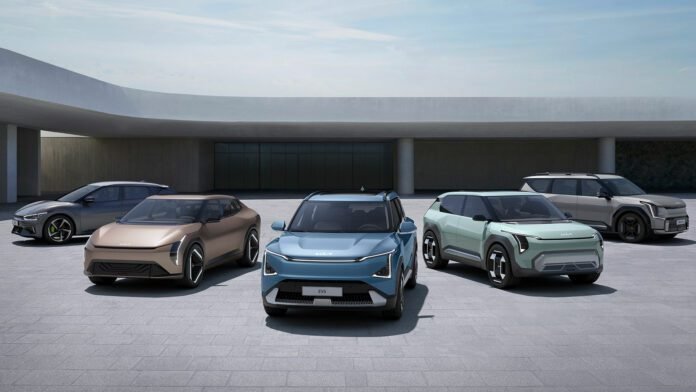According to people familiar with the situation, a Made in India clause in the new EV policy would probably ensure businesses don’t just assemble in India, even as New Delhi tries to entice international giants like Tesla Inc. to set up shop in the nation.
One of the individuals remarked, “The policy will be such that it will ensure that some amount of manufacturing happens in India; otherwise, it would discourage Made in India.” A new electric vehicle policy that would lower import taxes for businesses that commit to some local production is allegedly being developed by the Indian government.
Under the proposed proposal, automakers would be able to import fully-built electric vehicles into India at a tax rate as low as 15%, as opposed to the existing 100% tax applied to fully-built automobiles costing more than $40,000 and 70% tax on all other cars.
The aforementioned source also stated that the Centre will make sure local production is encouraged because the strategy applies to the entire industry, not just one particular business. According to this source, the Union government might permit Tesla to import parts from specific Chinese suppliers on an individual basis. They also mentioned that, in the case of Apple, India had already granted preliminary approval for some of the Chinese suppliers to the iPhone makers to establish joint ventures with Indian businesses in order to increase domestic smartphone manufacturing.
Prime Minister Narendra Modi told Moneycontrol back in September that in order to meet India’s sustainability goal of reducing carbon emissions, the government has been working on offering the EV industry a variety of incentives. India has already taken action to encourage the use of electric vehicles, such as PLI programmes to produce advanced chemical cells, autos, and auto parts. Even the 12 percent GST on electric vehicles was lowered to 5 percent.

Governmental Rewards for EV
Apart from the Center’s new electric vehicle policy, India is also counting on better incentives from states for electric vehicles to entice companies like Tesla Inc. to the ‘Make in India‘ initiative, a person with knowledge of the situation said. Under the condition of anonymity, this individual stated, “Some states could offer more incentives at their level that could make it more attractive for the US carmaker to manufacture in India even if the company is not on board with the benefits offered by the Center’s new EV policy alone.”
A number of states showed interest in the automaker choosing their area to start operations shortly after talks between Tesla and India started. A few, including Gujarat, Maharashtra, and Karnataka, made their states’ locations for a factory to the US automaker known in public.
In an effort to profit from the move towards more environmentally friendly automobiles, several Indian states have passed EV policies. These incentives at the state level are in addition to those provided by the federal government. Gujarat provides up to a Rs 20,000 subsidy for two-wheelers, Rs 50,000 for three-wheelers, and Rs 1.5 lakh for four-wheelers; however, Tamil Nadu’s package includes incentives such as a 15-year refund of 100% of the total state GST on electric vehicles manufactured and sold in the state.
Gujarat has maintained lines of communication open with Tesla in order to promote the automaker’s goals in India, according to a September newspaper report. According to a different source published on November 21, the corporation may make an announcement about its plans to establish a factory in the nation at the Vibrant Gujarat Global Summit in January. The article further stated that because Gujarat, Maharashtra, and Tamil Nadu already have built ecosystems for EVs and exports, they are being considered.


